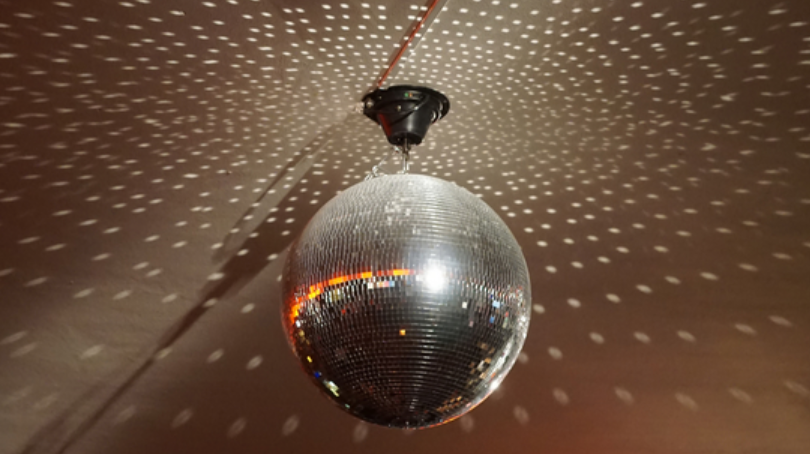It’s late on a Friday night or noon on a Tuesday; you’re with friends in a bar, or you’re hanging out just you and your cat. Over the bar speakers or on the car radio, through your laptop speakers or through your earbuds while you’re on the treadmill, a song that’s got that je ne sais quois comes on. You know the variety I’m talking about: the opening bars hit and your stomach goes all a-flutter, as if you’ve ingested a tiny bird that’s ingested a tiny amount of Alka Seltzer. Your heartbeat lowkey syncs up with the rhythm section, and the blood rushes to your cheeks, broadcasting to the world a message of: I’m liable to rip out my hair tie right now. The electricity that courses through you and your friends’ bodies is palpable, and you can tell from that sudden, slightly deranged gleam in everyone’s eyes that you’re all thinking the same thing: “THIS IS MY JAM.”
Perhaps it’s “Darling Nikki” by Prince. Or the cover of “Darling Nikki” by the Foo Fighters. It could be something more contemporary, like “Dangerous Woman,” by Arianna Grande or “Side to Side,” by Arianna Grande, or “Into You,” by Arianna Grande. Maybe it’s “Nice & Slow” by Usher, even. Or “Closer” by Nine Inch Nails. “Let Me Blow Ya Mind” by Eve, featuring Gwen Stefani (ugh, so good). “Feelin’ Myself” by Nicki Minaj, featuring Beyoncé. “Partition” by Beyoncé. Perhaps it’s something a little more unexpected, yet still spilling over with sex, such as “Talk Show Host” by Radiohead–by far the most sensual song to ever make mention of a pack of sandwiches. Anyway, you catch my drift. It’s a song that sets you free, that speaks to the sex embedded in your bone marrow, and listening to it is pure pleasure.
As such, they’re songs you very often hear in strip clubs, and artists like Gucci Mane supposedly test-market tracks in strip clubs before releasing them to the wider public. The sexiest songs out there serve as the soundtrack to a career that’s been stigmatized since inception, portrayed throughout our culture as the domain of tragic, desperate women. That’s changed somewhat in recent years, with the recognition of pole dancing as the acrobatic, artful, superhuman feat of strength and flexibility that it is. This has coincided with the rise in popularity of pole dancing as fitness class, but also from feminist voices like acclaimed author and sex worker Antonia Crane, whose memoir Spent was re-released earlier this month. Crane makes a compelling point in an essay she wrote for CNN a few years back: “That I make more money stripping at 42 than I ever have teaching, writing, counseling homeless youth, waiting tables or tending bar is a problem of sexism and living in a sexist culture, not a problem of the sex industry.” It’s a complex issue, to be sure; amidst an industry initially designed around the objectification of women for the purpose of male pleasure, is it possible for its practitioners to claim the act as their own and find empowerment? Crane gives a nuanced answer:
“Some say the sex industry exists because of misogyny and sexism. Some feminists think that men have dominion over women because they have money in the clubs and use that power to manipulate and subjugate women, but it’s more complex than that. I’ve held men who cry during lap dances, bewildered by their failures as fathers, sons, lovers, and husbands. I have, many times, felt like the more powerful and needed one in that context.
I’ve also been exhausted by my own compliance when it has meant more money, which I desperately needed at the time. Although it’s rare to find love in a strip club, what is found there is a more simple intimacy: human connection, compassion, desire and touch.”
Legislative issues surrounding the sex-worker industry are complex and fraught with compelling arguments from both sides, but this much is clear: That no-fucks-to-give feeling you get on the dance floor every time “Naughty Girl” comes on and you and your friends aredeep in itcomes from an embrace of our own sexuality. And this generosity of perspective and sense of empowerment is something we need to extend to sex-workers seeking it out, in place of the scorn our culture has dished out thus far.
In the meantime, today, on the one-year anniversary of losing the Purple One, let’s all take some advice from screenwriter and stripper Diablo Cody, who discusses her top-ten songs to strip to in her memoir Candy Girl: A Year in the Life of an Unlikely Stripper: “‘Purple Rain’ by Prince, but you have to be really theatrical about it. Arch your back like Prince himself is daubing body glitter on your abdomen. Most effective in nearly empty, pathos-ridden juice bars.”



